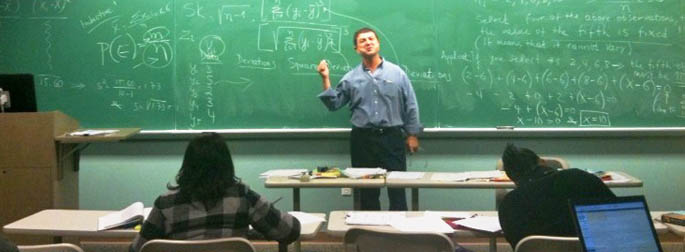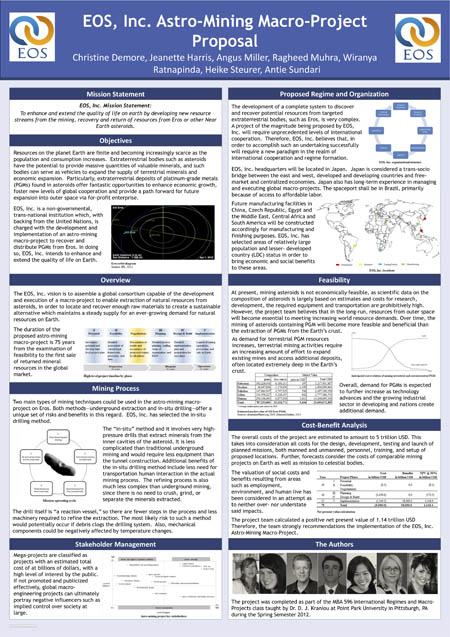M.B.A. Students Enhance Analytical Skills Through Course on Extraterrestrial Issues Monday, July 23, 2012

How do we allocate common resources on both terrestrial and extraterrestrial realms? Who owns extraterrestrial resources? What is the significance of the Moon Treaty, the Outer Space Treaty, the Antarctic Treaty, and the Law of the Sea?
Dimitris J. Kraniou, Ph.D., asks these questions and more in his M.B.A. special topics course titled Macro-Projects and International Regimes. Kraniou is a professor of international economics and global management and chair of the Department of Global Management and Organization.
This unique course encourages students to analyze issues of planetary proportions that have global implications — such as the mining of Antarctica, the management of industrial facilities near Earth's orbit, and the utilization of other extraterrestrial resources. In addition, the impact of property rights and legal treaties for both economically developed and underdeveloped nations are discussed.
According to Kraniou, one of the main objectives of the course is to expose students to a systematic array of global problems, issues, and complexities that require answers.
"The class takes students to higher intellectual plateaus because of the tendency to extrapolate, to ponder, and analyze 'what if' situations," said Kraniou.
"This was by far one of the most challenging classes I have taken in my entire career as a student," said Heike Steurer, a 2012 Point Park M.B.A. alum and financial analyst for Bayer Corporation.
"It brought together concepts of economics, ethics, biology, physics, law, political science, chemistry and strategic management. The complexity of the course presented unique challenges similar to what I encounter at work on a regular basis. Overall, Dr. Kraniou's class has been instrumental in helping me to successfully tackle complex issues and gain the attention of senior management," she added.
Since the class deals with scenario building techniques and strategic applications, it can be very helpful in the business sector as a way to refine analytical skills, develop processes, and to master new methodologies and techniques in the workplace, explained Kraniou.
In addition to its application to the workplace, Kraniou's class has also been beneficial to students in their doctoral studies. "Some of the basic themes of the course such as transaction costs, the role of governments/nonprofits, and knowledge spillovers, are having a direct influence on what I would like to write my dissertation about," remarked 2009 M.B.A. alumnus Andrew McIntyre, who is pursuing a Ph.D. in social and comparative analysis in education at the University of Pittsburgh.
"It was definitely not your typical business class," said Steurer. "Students in M.B.A. programs typically come from different educational backgrounds but the variety of topics covered in Dr. Kraniou's special topics course created a level playing field, allowing every student to excel in their respective field of interest. This is what made the class special."
More About: Rowland School of Business, faculty, M.B.A.


